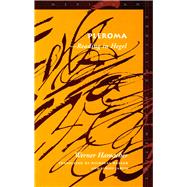
Note: Supplemental materials are not guaranteed with Rental or Used book purchases.
Purchase Benefits
Looking to rent a book? Rent Pleroma : Reading in Hegel [ISBN: 9780804721851] for the semester, quarter, and short term or search our site for other textbooks by Hamacher, Werner. Renting a textbook can save you up to 90% from the cost of buying.
| speculative proposition, speculative reading | |
| what remains | |
| Hegel on his death-bed | |
| the next Mass | |
| necessary self-destruction | |
| a hermeneutics of mortification | |
| the stones cry out, the stones fall silent | |
| a detour | |
| Mendelssohn and Kant, critics of the fetish | |
| a hermeneutics of morality | |
| literally reading, literally eating the fetish | |
| eristic dialectic contra Kant | |
| the allegory of speculative Christianity | |
| pouring, tearing | |
| the transcendental cut | |
| Gorgo, apotrope | |
| the wound of castration | |
| fetish unsublatable | |
| systematic sublation of the fetish | |
| death-feast of the Gaga, Eucharist | |
| nonontological remains | |
| a witches' kitchen | |
| spectral double of speculation | |
| Hegel's name | |
| shame | |
| a phenomenology of love | |
| shameful being | |
| pleroma, Evangelium, Gnosis, Wolff | |
| an inappropriate expression | |
| incision and the veil of language | |
| ontology struck dumb | |
| a love feast | |
| symbolon and its consumption | |
| mournful reading | |
| laceration of the lamb | |
| mother language and her son | |
| recollection, inscription, memory | |
| speculative incest | |
| ontology: love's supplement | |
| the father his grandson | |
| Hegel's tree, Kant's tree | |
| a speculative semontology | |
| reading generates theanthropology | |
| the name of the angel | |
| mother a hindrance | |
| ontology can be misconceived | |
| the All in All, and its fall | |
| as | |
| Logos, and self-excommunication | |
| Kant's moral-revolution | |
| the law as transgression | |
| fate | |
| parricide and reconciliation | |
| beauty as mimosis | |
| self-castration | |
| capitalism in ethics | |
| self-consciousness, guilt-consciousness | |
| reading as exculpation | |
| pouring, tearing | |
| a Christian socio-ontology | |
| pleroma and addendum | |
| material of the text | |
| being, a fetish | |
| revolution miscarried, ontology miscarried | |
| Systemfragment 1800 | |
| philosophical unity in place of political unity | |
| sacrifice: purposeless destruction | |
| philosophy as sacrificial meal | |
| tragedy of ethical life, disfigured, delayed | |
| a history of eating | |
| the mouse | |
| reformation of partaking | |
| revolution of reading | |
| reading: a political act | |
| the concept within the tabernacle | |
| the dissonant note within philosophy | |
| revolution without conclusion | |
| the absolute and the time of reading | |
| hic et nunc | |
| truth inscribed | |
| the double now | |
| reading as equivalation | |
| retention | |
| movement of inscription as condition of time | |
| concentric temporality | |
| the language of time: alteration, iteration | |
| this system in decay | |
| time eats | |
| corporeal schema | |
| sucking, drawing, withdrawing, delaying | |
| reading, a fissure in the absolute | |
| metaphorology | |
| incarnations of the idea | |
| the active sense of hearing: animal time | |
| logos, orality | |
| superfluous digestion | |
| blood and nous | |
| nausea | |
| retching: consolidating the schema | |
| the disfigured mouth, the distorted analogy | |
| a nauseous reading | |
| legible/illegible | |
| a mother's milk | |
| Nietzsche reads | |
| the leech | |
| the eternal return | |
| ruminating return | |
| Hegel, a woman | |
| process of the genus as process of disease | |
| vomitives | |
| dialectic of homeopathy | |
| scene of healing, scene of reading | |
| feminine cunning, an absolute | |
| Bibliography of cited works by Hegel | |
| Table of Contents provided by Blackwell. All Rights Reserved. |
The New copy of this book will include any supplemental materials advertised. Please check the title of the book to determine if it should include any access cards, study guides, lab manuals, CDs, etc.
The Used, Rental and eBook copies of this book are not guaranteed to include any supplemental materials. Typically, only the book itself is included. This is true even if the title states it includes any access cards, study guides, lab manuals, CDs, etc.